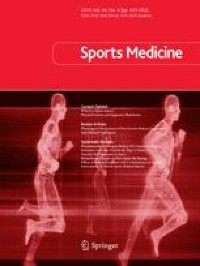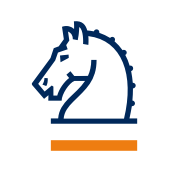Does Aerobic Training Actually Impair your Gains?
📝 Weekly paper summary

The Effects of Concurrent Aerobic and Strength Training on Muscle Fiber Hypertrophy: A Systematic Review and Meta-Analysis (Lundberg et al., 2022)
Category
Meta-Analysis
Context
Practitioners often argue whether concurrent training (i.e., prioritizing aerobic and strength training simultaneously) negatively impacts resulting training adaptations. Anecdotally, it's common for younger practitioners to denounce any aerobic training to not "ruin" any hypertrophy gains. However, the resulting adaptations likely depend on the frequency, intensity, and type of exercises that one is participating in. For example, selecting running versus cycling as the aerobic activity would impose different stimuli to the lower extremity musculature, and thus their impact on muscle hyertrophy may be unique. This meta-analysis' purpose was to 1) quantify the impact of concurrent aerobic and strength training on muscle hypertrophy and 2) explore how different types of aerobic activity may impact muscle hypertrophy.
Correctness
The methods were fairly standard for a meta-analysis. As with most publications from Sports Medicine, the overall paper was really well done. One limitation of the analysis was that participants were only split into "active" and "untrained" with the authors describing the subgroup analyses as follows:
studies were classified as “untrained” if participants were clearly described as “sedentary,” “previously untrained,” or “inactive”. Conversely, all other studies were classified as “active” (i.e., “recreationally active,” “trained,” and “well-trained”)
Personally, I would have liked a more nuanced delination of what "active" actually meant. For example, were these "aerobically" trained individuals? Powerlifters? Team sport athletes? It's almost certain that there wouldn't have been enough data to subgroup the studies in this manner, but nevertheless I think this is an important delimitation to consider when interpreting the findings of this study; I certainly don't think that aerobically versus anaerobically trained individuals will respond similarly to concurrent training, which get "lost" in these aggregations.
Contributions
- Concurrent training had a very small negative effect on whole muscle hypertrophy.
- However, this negative effect is more pronounced when performing running versus cycling as the aerobic stimuli.
- Practically, I think these results are interesting since I'm a big fan of imposing variability during training, both in terms of the exercises and the demands imposed. Thus, it seems that beyond trying to optimize elite athlete performance as they taper towards competition, there is a very, very small trade-off in hypertrophy that I would deem acceptable to reep the additional benefits of imposing more variability during training. I'm not sure if that trade-off is necessarily acceptable for you or your clients, but this Meta-Analysis at least helps you to make the most informed decision possible.
🧠 Fun fact of the week
I always find it crazy when I remember that all the planets in the solar system could fit between the earth and the moon:

🎙 Podcast recommendation
This podcast is an excellent summary of the paper titled: Utilizing hierarchical redundancy for accurate throwing movement. If you like basketball at all, you'll also really like this paper summary.
🗣 Quote of the week
"Men are haunted by the vastness of eternity. And so we ask ourselves: will our actions echo across the centuries? Will strangers hear our names long after we are gone and wonder who we were, how bravely we fought, how fiercely we loved?"
- Odysseus (also the opening quote from Troy, which I watched for the first time this past weekend)

